 ON SEAMUS HEANEY
ON SEAMUS HEANEY
WRITERSON WRITERS
R. F. FosterOn Seamus Heaney
John BurnsideOn Henry Miller
Michael WoodOn Empson
Colm TOn Elizabeth Bishop
Alexander McCall SmithWhat W. H. Auden Can Do for You
Michael DirdaOn Conan Doyle
C. K. WilliamsOn Whitman
Phillip LopateNotes on Sontag
R. F. FOSTER ON SEAMUS HEANEY
ON SEAMUS HEANEY
PRINCETON UNIVERSITY PRESS
Princeton and Oxford
Copyright 2020 R. F. Foster. Not to be quoted without permission
Requests for permission to reproduce material from this work should be sent to permissions@press.princeton.edu
Published by Princeton University Press
41 William Street, Princeton, New Jersey 08540
99 Banbury Road, Oxford OX2 6JX
press.princeton.edu
All Rights Reserved
First paperback printing, 2022
Paper ISBN 978-0-691-23404-5
E-book ISBN 978-0-691-21147-3
The Library of Congress has cataloged the cloth edition as follows:
Names: Foster, R. F. (Robert Fitzroy), 1949 author.
Title: On Seamus Heaney / R. F. Foster.
Description: Princeton : Princeton University Press, [2020] | Series: Writers on writers | Includes bibliographical references and index.
Identifiers: LCCN 2020009285 (print) | LCCN 2020009286 (ebook) | ISBN 9780691174372 (hardback ; acid-free paper) | ISBN 9780691211473 (ebook)
Subjects: LCSH: Heaney, Seamus, 19392013Criticism and interpretation.
Classification: LCC PR6058.E2 Z6597 2020 (print) | LCC PR6058.E2 (ebook) | DDC 821/.914dc23
LC record available at https://lccn.loc.gov/2020009285
LC ebook record available at https://lccn.loc.gov/2020009286
Version 1.1
British Library Cataloging-in-Publication Data is available
Editorial: Ben Tate and Josh Drake
Text and Jacket Design: Leslie Flis
Production: Jacqueline Poirier
Publicity: Katie Lewis and Jodi Price
Copyeditor: Luane Hutchinson
Cover design by Amanda Weiss
 for Jan Dalley
for Jan Dalley
 CONTENTS
CONTENTS PREFACE AND ACKNOWLEDGEMENTS
PREFACE AND ACKNOWLEDGEMENTSThis short book arises not only from a deep admiration for Seamus Heaneys work, but also from a fascination with its unique ability to speak to a wide readership while retaining its own independent mysteries. Sustained immersion in his writing for the past few years may not have supplied all the answers to the question of how he achieved this, but it has brought other pleasures in its wake. I am acutely aware that I am far from possessing Heaneys gift to glean the unsaid off the palpable, but working on this book has brought me somewhere closer to the core achievement of a great poet, and made me wish I had known him better in life.
The book is written from the standpoint of a historian and biographer, to whom Heaneys poetry has spoken in a direct and forceful way since his early books. I remember where I was sitting when I read North in 1975 and felt that authentic sensation of the hairs standing up on my head. Nearly twenty years later, I read At the Wellhead in the New Yorker, tore it out, and pinned it to the noticeboard in my Oxford study; slightly yellowed but enduringly magical, it was still there when I moved out after another twenty-odd years. And reading Album in his last collection, the attempts to embrace a lost father resonated so profoundly that my eyes filled with tears. I am just one of numerous readers for whom Heaneys work has provided a series of touchstones throughout life, creating a permanent resource.
It is difficult to write about someone who wrote so well about himself, not to mention leaving behind the treasure trove of interviews in Dennis ODriscolls marvellous Stepping Stonesa kind of transactional autobiography. Nonetheless, I have tried to read the work in the light of the poets life and the historical circumstances surrounding it. The result underlines Heaneys lifelong commitment to artistic integrity. This was sustained in the face of pressures to write for the occasion, particularly the political occasion. He preferred to let a poem find himand its audience. There is also a very strong sense of continuity and inheritance. imposed upon himself the task of hammering his thoughts into a unity, Heaney wrote, Wordsworth was fulfilling it with deliberate intent. Indeed, it is not until Yeats that we encounter another poet in whom emotional susceptibility, intellectual force, psychological acuteness, political awareness, artistic self-knowledge and bardic representativeness are so fully and resolutely combined. Heaney himself might be seen as the next link in this chain, and the connections with Yeats form one of the themes of this book, delicate though Heaney himself was about negotiating them.
I am grateful to Ben Tate of Princeton University Press for suggesting I write it, to my agent Peter Straus for bringing it about, and above all to the Heaney familyMarie, Christopher, Mick, and Catherinefor their friendly encouragement throughout. Much of the thinking and reading behind this book took place during my year as Parnell Fellow at Magdalene College, Cambridge; I am grateful to the Master, Rowan Williams, to the Fellows, and especially to Eamon Duffy, himself a penetrating and close reader of Heaneys poetry.
This is no more a work of exhaustive literary criticism than it is a comprehensive biography, but in arriving at these reflections, it will be clear what I owe to the work of notable commentators on Heaney such as Neil Corcoran, Rui Carvalho Homem, Bernard ODonoghue, Michael Parker, Marilynn Richtarik, Richard Rankin Russell, and Helen Vendler, several of whom were kind enough to discuss aspects of his work with me. I am also grateful to Mary Broderick, Eugene Kielt, Blake Morrison and Andrew OHagan for generously directing me towards material, and above all to Jan Dalley, Tom Dunne, Aisling Foster, Grey Gowrie, Joe Hassett, Hermione Lee, Christina Mahony, andagainCatherine Heaney for their close and immensely helpful reading of the manuscript.
The extract from Little Gidding on pp. 1023 is excerpted from Four Quartets by T. S. Eliot. Copyright 1943 by T. S. Eliot. Copyright renewed 1971 by Esm Valerie Eliot. Published by Faber & Faber and Houghton Mifflin Harcourt. Reprinted by permission.
Poems by Seamus Heaney are quoted with permission of the Estate of Seamus Heaney, Faber and Faber, and Farrar, Straus and Giroux, to whom I am grateful: excerpts from District and Circle by Seamus Heaney, copyright 2006 by Seamus Heaney; excerpts from Electric Light by Seamus Heaney, copyright 2001 by Seamus Heaney; excerpts from Human Chain by Seamus Heaney, copyright 2010 by Seamus Heaney; excerpts from Opened Ground: Selected Poems, 19661996 by Seamus Heaney, copyright 1998 by Seamus Heaney; excerpts from Poems 19651975 by Seamus Heaney, copyright 1980 by Seamus Heaney.
Quotations from private letters appear by permission of the recipient and the Estate of Seamus Heaney. The quotation from his journal on pp. 9697 appears with permission of the Estate of Seamus Heaney and the National Library of Ireland.


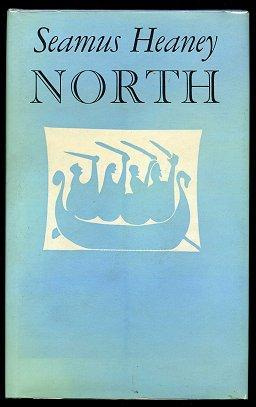
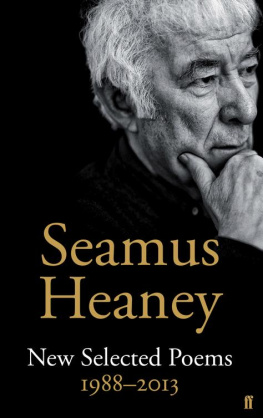
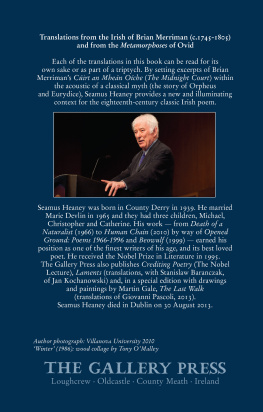
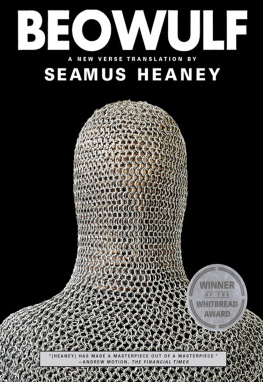
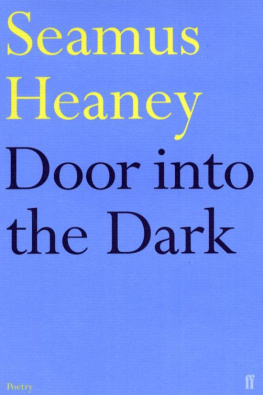
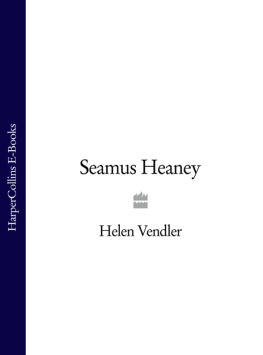
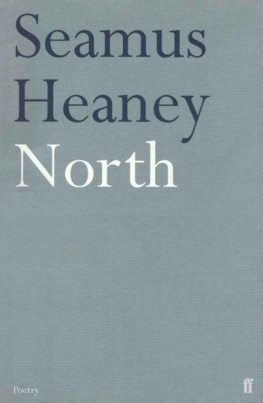
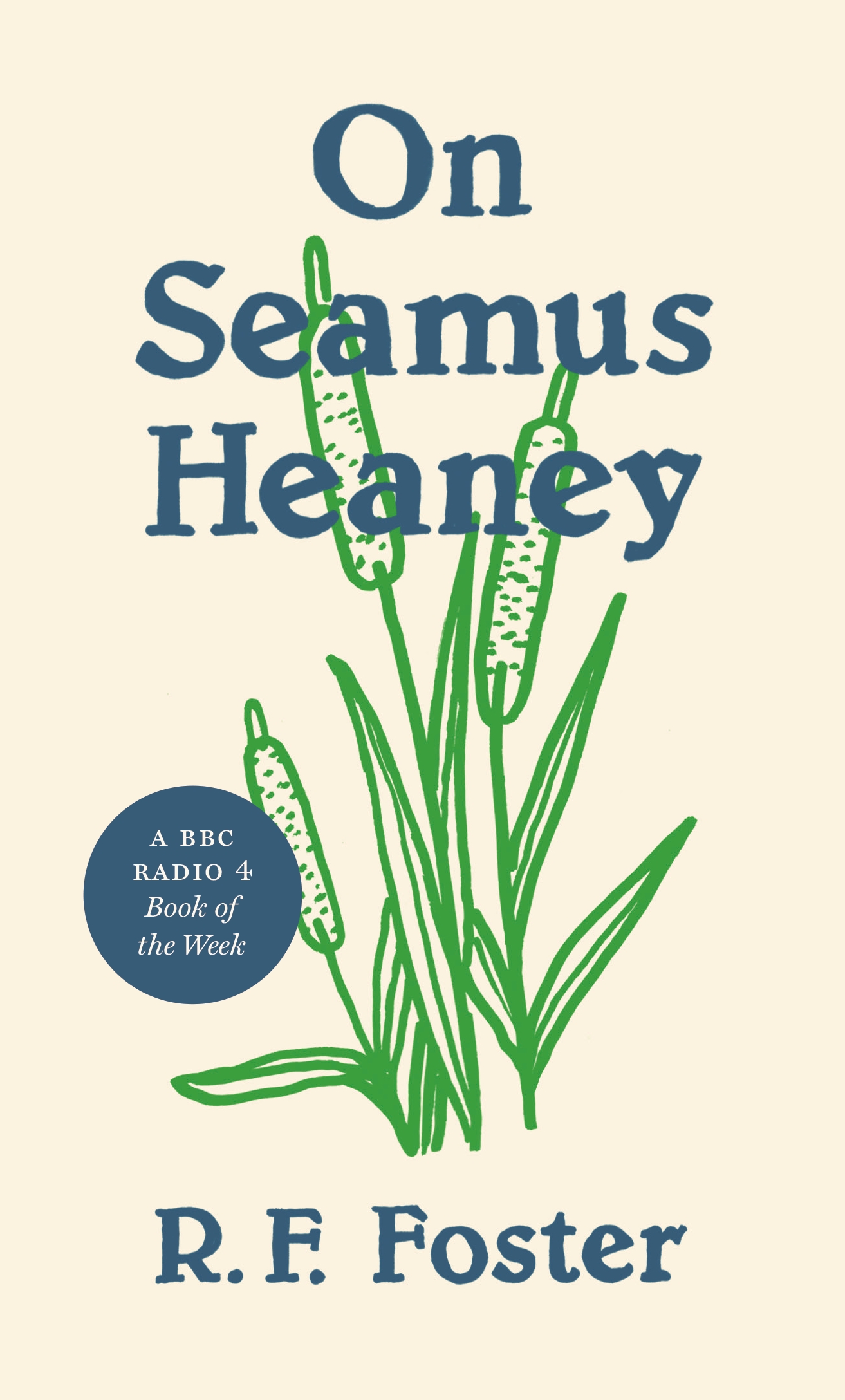
 ON SEAMUS HEANEY
ON SEAMUS HEANEY